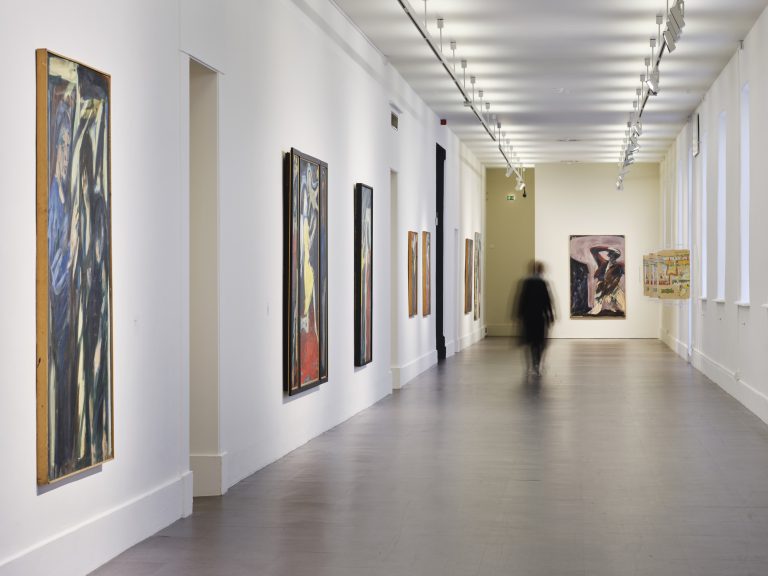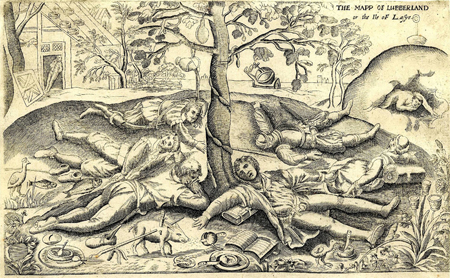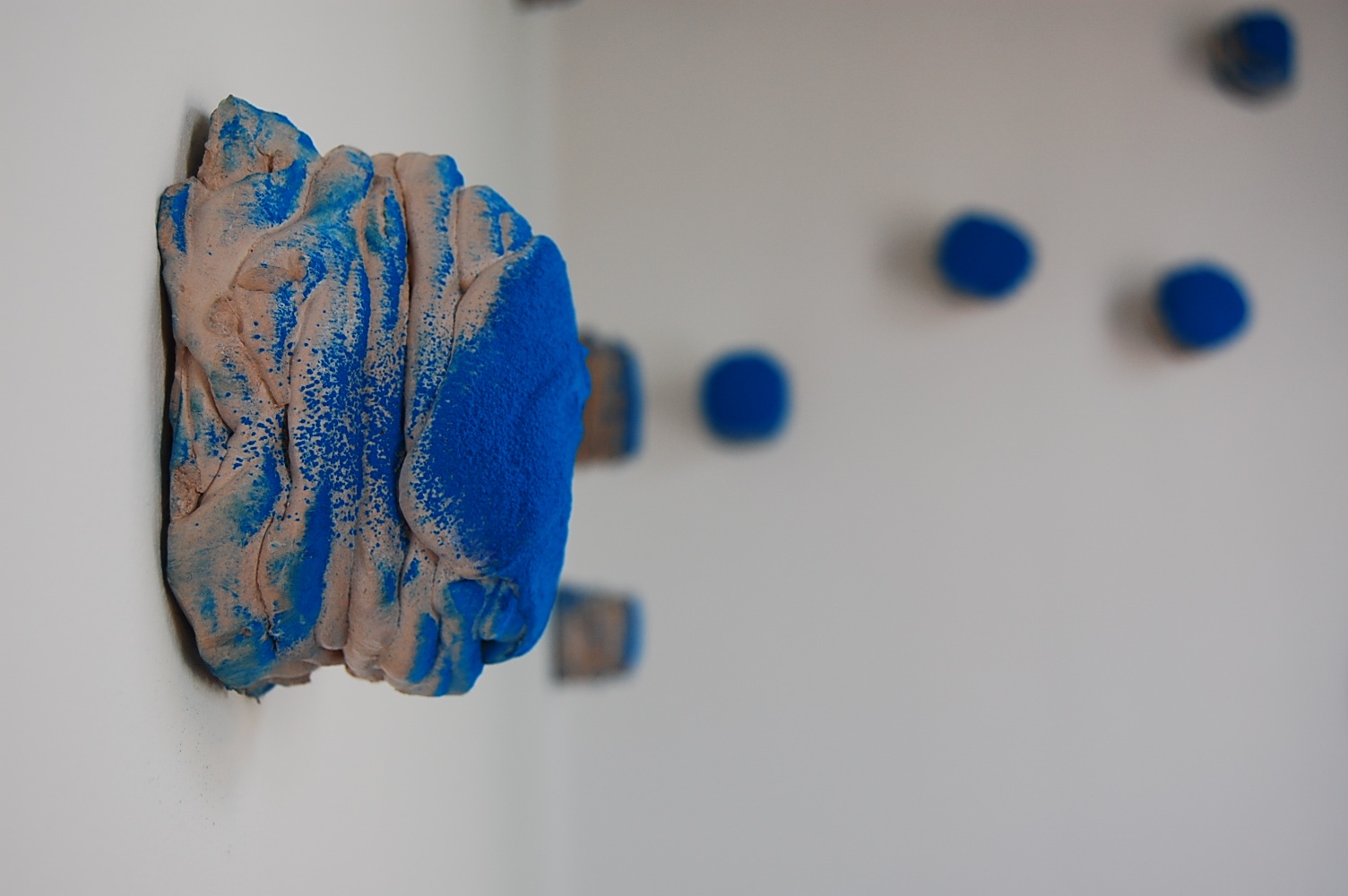All too clearly do I recall being dragged around garden centres as a sullen pre-adolescent by my mother and hers. For them it was an occasion in itself, though they never seemed to need anything in particular. In any case, we would load up the car with pots and compost and shrubbery, and return home to further subdue that outside terrain known as ‘garden’.
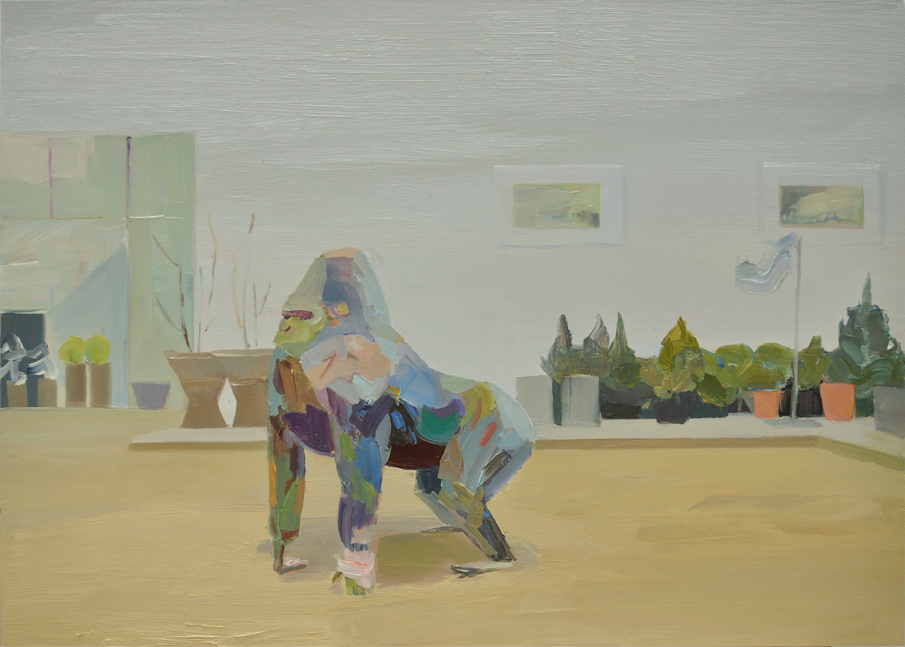
Mairead O’hEocha: Gorilla Ornament, Arboretum, Co Carlow
oil on board, 2012
Courtesy mother’s tankstation.
Both artificial and somewhat superfluous, the garden centre is a strange place to start, and yet it is here that Mairead O’hEocha sites her new body of work. A succinct collection of seven paintings, mostly in oil on board, The Sky was Yellow and the Sun was Blue firmly embeds itself in the rural garden centre of my childhood. In these works, however, the spaces are washed out and cavernous, punctuated only by a bizarre proliferation of garden paraphernalia. In one particularly striking work, Gorilla Ornament, Arboretum, Co. Carlow, said faux-gorilla sits center stage, a surreal cacophony of refracted pastel hues. In another, Plant and Frog, a large palm plant sits between two ornamental garden frogs. In limbo: not yet bought or appropriated to other surroundings, the tawdry curios of these paintings fully divulge their singular oddity. Their strangeness is echoed in the works’ execution: the painterly decisions – that of colour and line – serve only to further reinforce the surreal quality of the subject matter. To me the colours resemble those that peek out and shimmer as light hits oil; always unforeseen, but strangely natural at one and the same time. The sky might be yellow, or mauve and pink for that matter, but there is somehow a ‘rightness’ in its surreal incongruity.
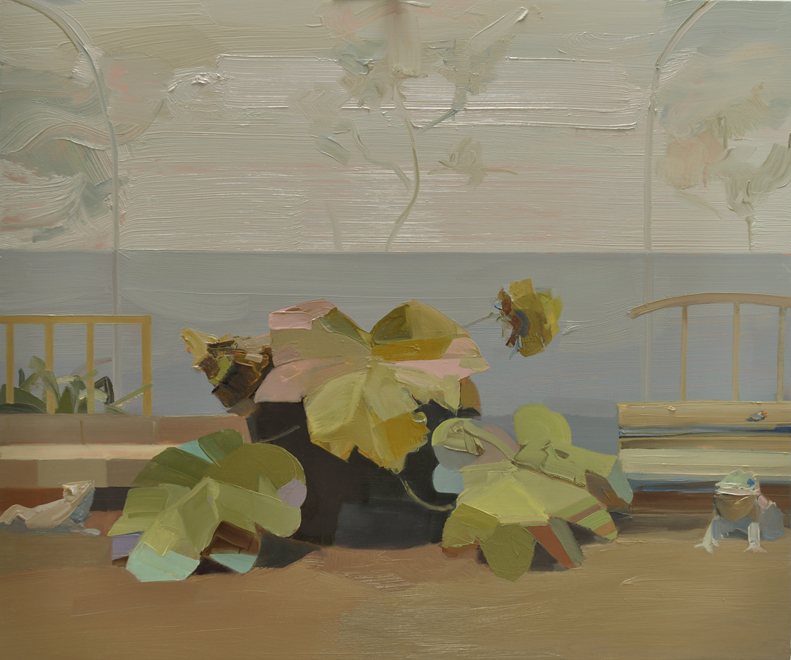
Mairead O’hEocha: Plant and Frog,
oil on board, 2012
Courtesy mother’s tankstation.
O’hEocha’s style thus might somehow be considered realist, but of a loose and subjective kind. For me, her work is best described as situated on a realist trajectory, as if entering into, or indeed departing from, realism. One work, Bird Feeders and Saplings, Enniskerry, Co. Wicklow, seems to visually support such a view: these delicate and sparsely hewn forms stand in processional grandeur, creating an avenue-like effect through their sinewy forms. For me, the desire to enter into their trajectory is enticing, though its destination never wholly articulated. What is suggested is a kind of wish to interact with the works formally; thwarted and bent out of shape; misshapen and fully ‘wrong’ on the level of colour, they delimit the frame of an oddly tantalising and wonky realism. In another work, Freezing Fountain, Lusk, Co. Dublin, the fountain is transformed into a spiky geometric palimpsest: linear sketches of stalled, frozen jets of water come to resemble something a classical abstract modernist might garner from such a quotidian scene. Certainly, moving closer to the painting, the work further elucidates its debt to abstraction: the attempt at space is reduced to a flattened plane of colour and line. And yet the works never fully renege their allegiance to realism; O’hEocha’s work sees fit to find the abstract tendencies implied by bondage to what really is there.
There is both something of the ruin and utopia in O’hEocha’s subject matter: ruin, because these scenes appear as empty in their contextual zero-ground; they subsist in the hope of a deciphering futurisity that will bestow them with meaning: utopian, because within this hypothetical future clings still a kind of promise, forced and artificial though it may be. This duality in mind, the paintings’ execution teeters paradoxically between sheer banality and revelatory luminosity: a sidestep out of the predominantly grey and mauve colour scheme permits the subject matter’s reappraisal not as dead sites, but as sites simply on hold, waiting. A noticeable trait is that the sites depicted are empty of people, and so possibly they wait on humanity. Taking another view, these sites and the objects that populate them might simply be waiting on a context outside of exchange value. Taken as they are, they are purely that – decorative and wholly artificial, they exist as objects performing nothing but the uncanny desirability of objecthood. As signifiers of exchange value, they are resplendent: empty of use or context, these objects wait to be bought, appropriated and fattened up with context and use. O’hEocha’s clear decision to title every work with a deliberate specificity of place and content – for example Preformed Ponds and Water Barrel, Co. Dublin – resembles a fight against this vacancy; by binding these sites and objects to real ones, she attempts to imbue them with a life-force she knows to be absent.
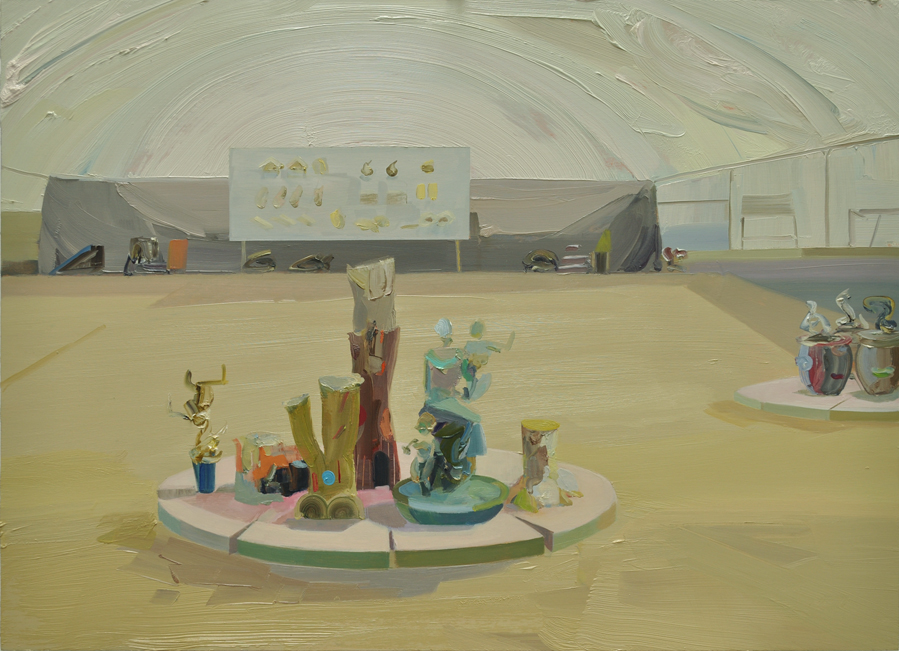
Mairead O’hEocha: Garden Pond Centre
oil on board, 2012
Courtesy mother’s tankstation.
The rural garden centre is a strange premise, though: born of the desire to reclaim, tame and aestheticise the land, they are sites rooted in the wish to check nature itself. The question of taste rears its head with O’hEocha’s garish frogs and gorillas, and exotic plants wholly alien to the rural environment outside, ever redefined. And yet there is a strange optimism about these places, also. As aesthetic objects and sites, there is a luminescence that supersedes their status as pure exchange value; caught in the optimistic gaze of O’hEocha’s works, a preformed pond becomes the possibility of transcendence, the sky an unseen wash of pinks and greys and greens. The brilliance of an unspoken promise is transmitted in every work – the promise of painting, surely, but also the promise of aesthetics or beauty more generally. Wholly artificial spaces and objects though they might depict, O’hEocha’s paintings articulate the hope or promise of beauty that pervades and supports the everyday.
Rebecca O’Dwyer is a writer and researcher based in Dublin.

